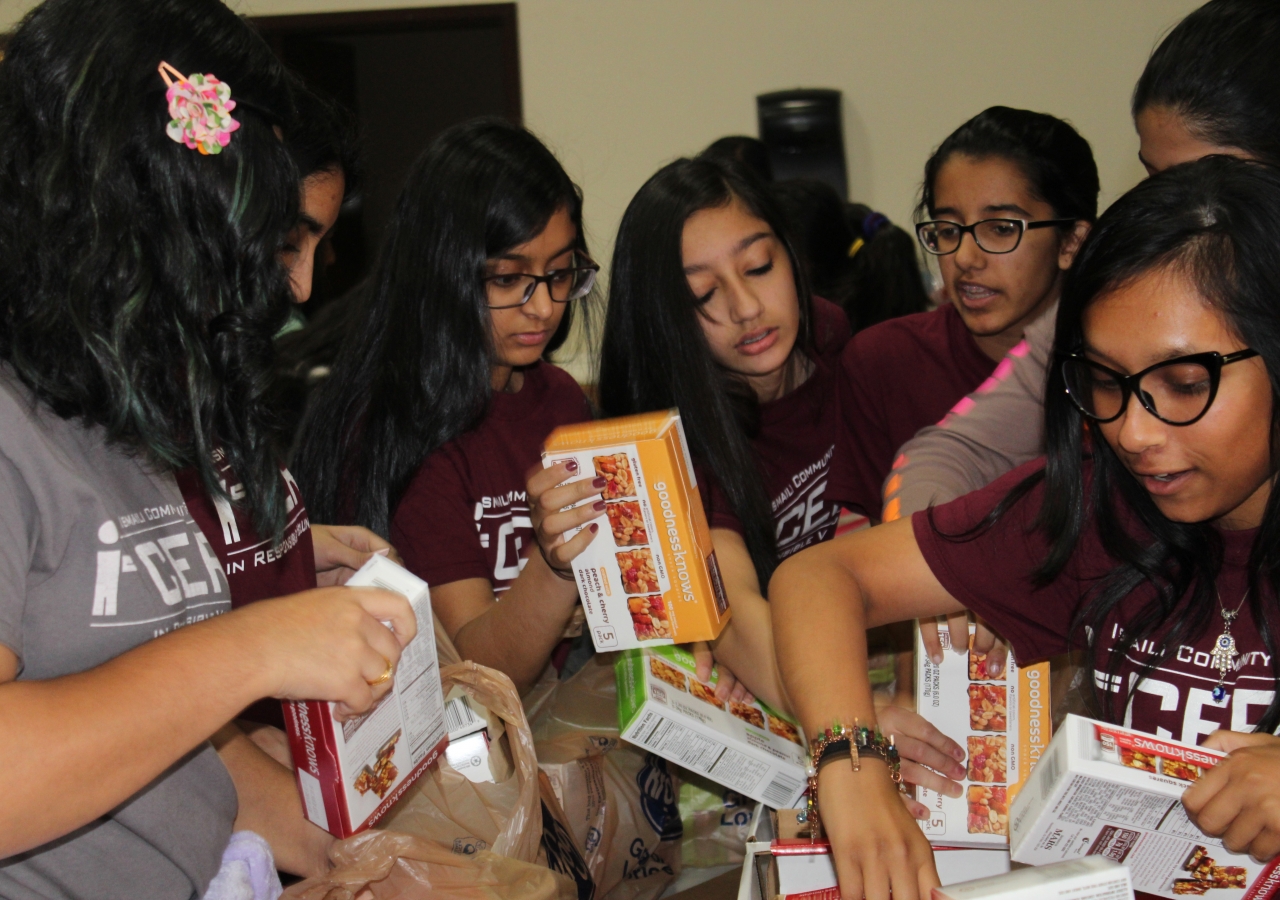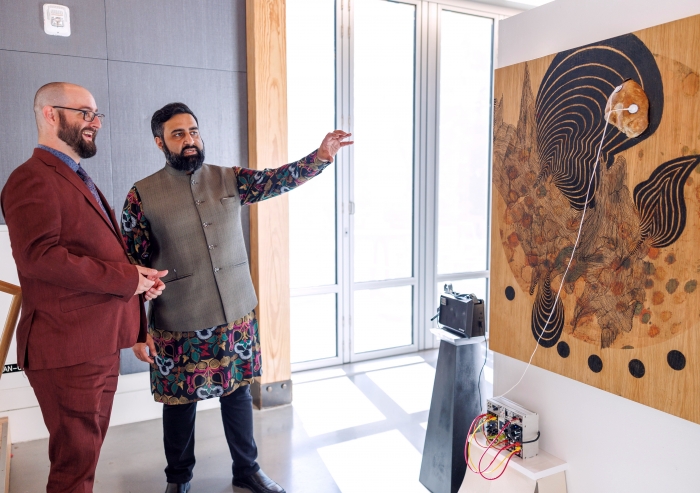A six-week-long community service challenge that brought together hundreds of people of all ages and contributing over a thousand hours of voluntary service helping the less fortunate have a better holiday season.
Sharing the Bounty
Thanksgiving is a traditional American holiday celebrated on the fourth Thursday in November, and marks the beginning of the annual holiday season. It's a time for family and friends to break bread and give thanks for God's grace and bounty. Thanksgiving is also a to assist those in need, even as most others are celebrating with families.
Like many Americans, the Ismaili Muslims took this special time of year as an additional opportunity to serve their communities by sharing their time and resources for the benefit of others. “Seeing new faces and physically visiting a local food bank showed us different opportunities around us,” expressed Erum Ali, who led a group of 75 volunteers in Atlanta, under the I-CERV Initiative. The program hosts service activities in the community to encourage positive youth development, build a community of active Ismaili youth, and reinforce the values that are central aspects of faith. “I feel as though each one of us there made an impact on the greater community,” Erum added, as she thought about her fellow Atlantans.
“It was beautiful to see many communities collaborating and working together towards a common goal,” echoed Narmeen Ratani who, with other local I-CERV volunteers, dedicated thousands of hours during the Thanksgiving season to help with the Hosea Feed the Hungry Initiative in Atlanta. Started by civil rights leader The Reverend Hosea Williams, Jr. in 1971, this initiative has served 500,000 people with the help of over 60,000 volunteers since its inception. “My family and I had a very humbling experience,” Narmeen reflected. "It's wonderful to see how helpful and caring the Muslim community of Atlanta is,” expressed Mrs. Elisabeth Omilami, daughter of Reverend Hosea Williams, and CEO/President of Hosea Helps. “I hope that I-CERV will continue to volunteer and be a part of our Hosea family and organization," she added.
The Ethic of Service
Service (seva) is a cornerstone of the Ismaili Muslim community and part of the ethical and humanistic tradition of Islam. Anisa Badruddin, a teacher at the Ismaili Jamatkhana said, “The beautiful thing I observed was that regardless of where we were from or what we represented, we were all working towards the same goal, ensuring that people have a wonderful meal for Thanksgiving. I am teaching the Faith and Practice module to our children, and one of the things the curriculum discusses is how you put your faith into action through your engagement in the world with the use of ethics.”
One aspect of this community service initiative was that it was multigenerational. Seniors and youth, parents and children, worked side by side serving water to marathon runners at a Turkey Trot, sorting nonperishable foods at food banks, and collecting recyclable electronics and equipment. Shezmin Sayani and her nine-year old son Khaleel helped sort cans of food for over 5000 homeless children. She said, “This project gave me the opportunity to bring up the conversation with my child about the importance of volunteering, giving back to the community, and [the] ethical and moral obligations to pay it forward.” She added, “Just a few days prior to the project, we were having a discussion at the dinner table about the delicious food we are blessed with and how there are hundreds and thousands who may not have much this holiday season. For my son and I, this project brought things into perspective,”
Whether volunteering at a food bank, or preparing meals at the soup kitchen, Thanksgiving is a time to recognize that which we are thankful for with communities that we are a part of. While the immediate goal of service is to help those in need, volunteers usually find that they themselves benefit enormously from the experience.








